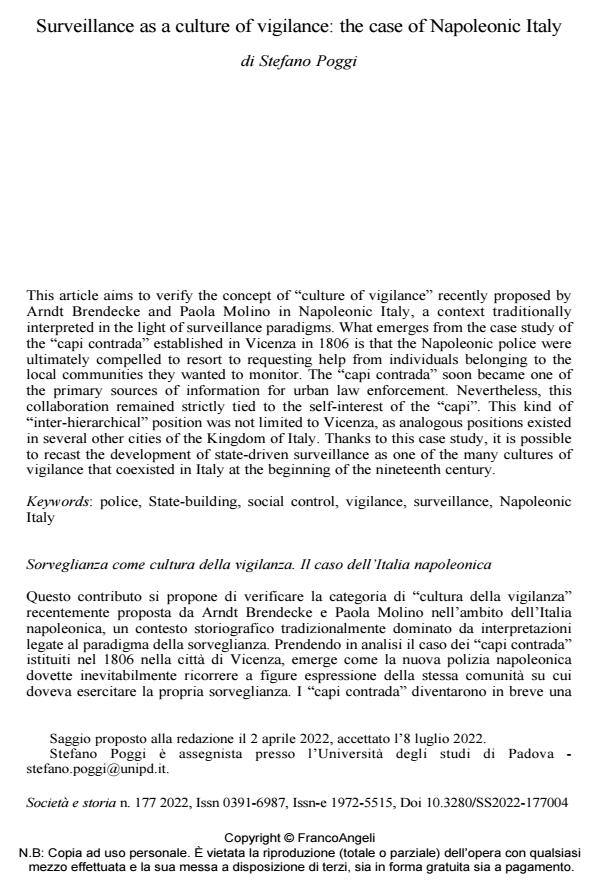Sorveglianza come cultura della vigilanza. Il caso dell’Italia napoleonica
Journal title SOCIETÀ E STORIA
Author/s Stefano Poggi
Publishing Year 2022 Issue 2022/177
Language English Pages 13 P. 569-581 File size 218 KB
DOI 10.3280/SS2022-177007
DOI is like a bar code for intellectual property: to have more infomation
click here
Below, you can see the article first page
If you want to buy this article in PDF format, you can do it, following the instructions to buy download credits

FrancoAngeli is member of Publishers International Linking Association, Inc (PILA), a not-for-profit association which run the CrossRef service enabling links to and from online scholarly content.
This article aims to verify the concept of "culture of vigilance" recently proposed by Arndt Brendecke and Paola Molino in Napoleonic Italy, a context traditionally interpreted in the light of surveillance paradigms. What emerges from the case study of the "capi contrada" established in Vicenza in 1806 is that the Napoleonic police were ultimately compelled to resort to requesting help from individuals belonging to the local communities they wanted to monitor. The "capi contrada" soon became one of the primary sources of information for urban law enforcement. Nevertheless, this collaboration remained strictly tied to the self-interest of the "capi". This kind of "inter-hierarchical"position was not limited to Vicenza, as analogous positions existed in several other cities of the Kingdom of Italy. Thanks to this case study, it is possible to recast the development of state-driven surveillance as one of the many cultures of vigilance that coexisted in Italy at the beginning of the nineteenth century.
Keywords: police, State-building, social control, vigilance, surveillance, Napoleonic Italy
Stefano Poggi, Surveillance as a culture of vigilance: the case of Napoleonic Italy in "SOCIETÀ E STORIA " 177/2022, pp 569-581, DOI: 10.3280/SS2022-177007